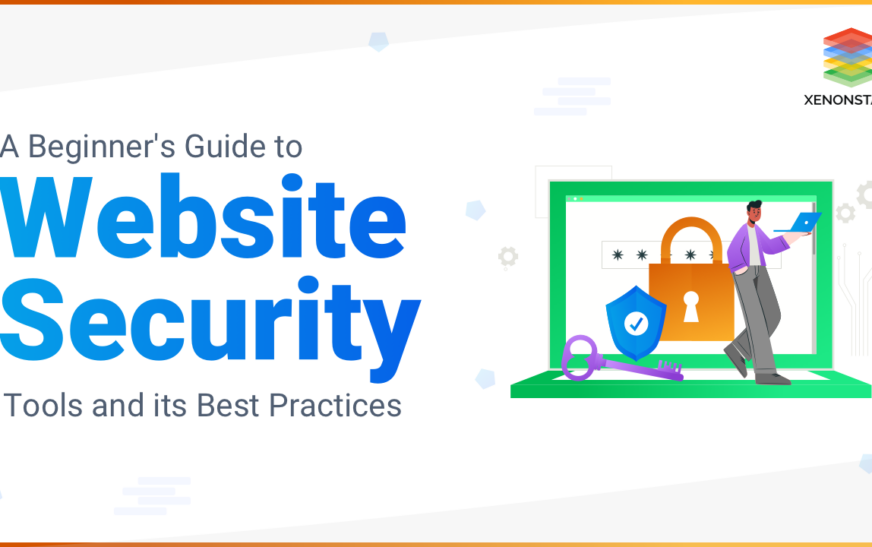With Top Digital Tools for Website Security at the forefront, embark on a journey to safeguard your online assets from cyber threats. Learn about the essential tools and strategies to fortify your website’s defenses and ensure a secure online environment.
Importance of Website Security

Website security is essential for businesses to protect their online presence and safeguard sensitive information. Without adequate security measures in place, websites are vulnerable to cyber attacks and data breaches that can have severe consequences.
Potential Risks of Poor Website Security
- Loss of Customer Trust: A compromised website can lead to the theft of customer data, eroding trust in the brand and resulting in loss of business.
- Financial Loss: Cyber attacks can result in financial losses due to stolen funds, ransom payments, or costs associated with recovering from an attack.
- Damage to Reputation: A security breach can tarnish a company’s reputation, leading to negative publicity and long-term damage to the brand.
Cyber Attacks Targeting Websites
According to a report by Cybersecurity Ventures, it is estimated that cybercrime will cost the world $6 trillion annually by 2021. Websites are prime targets for cyber attacks, with hackers constantly looking for vulnerabilities to exploit and gain unauthorized access to sensitive information.
Improving your website’s SEO is crucial for online visibility. Discover the top digital tools for conducting SEO audits in this comprehensive guide to The Best Digital Tools for SEO Audits. By utilizing these tools, you can optimize your website’s performance and increase your search engine rankings effectively.
Common Website Security Threats
Website security is crucial in today’s digital landscape, as cyber threats continue to evolve and become more sophisticated. Understanding the common threats websites face is essential in safeguarding your online presence and protecting sensitive information.Malware is one of the most prevalent threats to website security.
When it comes to creating engaging videos, having the right tools is essential. Check out this list of The Best Digital Tools for Video Editing and take your video content to the next level. With these tools, you can enhance your videos with professional editing techniques that will captivate your audience.
Malicious software can infect a website through various means, such as phishing emails, unsecure plugins, or compromised networks. Once malware infiltrates a website, it can steal sensitive data, disrupt operations, or even hijack the site for nefarious purposes.
Impact of Malware on Website Security
Malware can have devastating consequences for a website and its users. It can lead to data breaches, financial losses, reputational damage, and legal repercussions. Additionally, malware can compromise the integrity of a website, leading to a loss of trust among visitors and customers.To mitigate the risk of malware attacks, websites must implement robust security measures, such as regular malware scans, software updates, and secure hosting solutions.
Educating users about cybersecurity best practices and implementing strong password policies can also help prevent malware infections.
DDoS Attacks and Website Security
Distributed Denial of Service (DDoS) attacks are another significant threat to website security. In a DDoS attack, malicious actors flood a website with an overwhelming amount of traffic, causing it to become slow or unresponsive. This can disrupt normal operations, lead to downtime, and result in financial losses for businesses.To defend against DDoS attacks, websites can implement DDoS mitigation solutions, such as web application firewalls and traffic filtering services.
These tools can help detect and block malicious traffic before it reaches the website, ensuring uninterrupted service for legitimate users.By understanding and addressing common website security threats like malware and DDoS attacks, website owners can protect their online assets, maintain user trust, and uphold the integrity of their digital presence.
Top Digital Tools for Website Security
When it comes to ensuring the security of your website, utilizing the right digital tools is essential. These tools can help you detect and prevent potential threats, safeguarding your website and protecting sensitive data.
1. Firewall Systems
Firewall systems act as a barrier between your website and potential threats from the internet. They monitor and control incoming and outgoing network traffic based on predetermined security rules. Popular firewall tools include Cisco ASA, Fortinet FortiGate, and pfSense.
2. SSL Certificates
SSL certificates encrypt the data transmitted between a user’s browser and your website, ensuring secure communication. Tools like Let’s Encrypt, Comodo SSL, and DigiCert offer SSL certificate solutions to help protect sensitive information.
Creating high-quality content is the key to attracting and retaining your audience. Explore how digital tools can help you achieve this goal in this insightful article on How Digital Tools Can Help You Create Better Content. By leveraging these tools, you can enhance your content creation process and deliver valuable information to your readers.
3. Malware Scanners
Malware scanners help detect and remove malicious software that can compromise your website’s security. Tools like Sucuri, Wordfence, and SiteLock scan your website for malware, vulnerabilities, and suspicious activities to keep it secure.
4. Vulnerability Assessment Tools
Vulnerability assessment tools identify weaknesses in your website’s security posture, allowing you to address them proactively. Tools like Nessus, QualysGuard, and Acunetix help you conduct comprehensive security assessments and prioritize remediation efforts.
5. Security Information and Event Management (SIEM) Solutions
SIEM solutions collect and analyze security event data from various sources to provide real-time threat detection and incident response. Tools like Splunk, IBM QRadar, and LogRhythm help you monitor and manage security events effectively.Regularly updating security tools is crucial to stay ahead of evolving threats and ensure optimal protection for your website.
By keeping your tools up to date, you can effectively mitigate risks and enhance your website’s overall security posture.
Implementing Website Security Measures: Top Digital Tools For Website Security
When it comes to securing your website, it is crucial to implement various security measures to protect it from potential cyber threats. By taking proactive steps, you can safeguard your website and ensure the safety of your visitors’ data.
Setting up SSL Certificates for Secure Connection
SSL (Secure Sockets Layer) certificates play a vital role in encrypting data exchanged between a user’s browser and your website. Here is a guide on how to set up SSL certificates for a secure connection:
- Choose a reputable SSL certificate provider to purchase a certificate.
- Generate a CSR (Certificate Signing Request) from your web server.
- Submit the CSR and other required information to the SSL certificate provider.
- Complete the domain validation process to authenticate your website.
- Install the SSL certificate on your web server and configure it to enable HTTPS.
- Regularly monitor and renew your SSL certificate to ensure continuous protection.
The Role of Firewalls in Website Protection, Top Digital Tools for Website Security
Firewalls act as a barrier between your website and potential cyber threats, monitoring and controlling incoming and outgoing network traffic. Here are some key points regarding the role of firewalls in protecting websites:
- Firewalls help prevent unauthorized access to your website by filtering incoming traffic based on a set of predefined rules.
- They can detect and block malicious traffic, such as hacking attempts, DDoS attacks, and malware infections.
- Firewalls can be implemented at the network level (hardware firewalls) or the application level (software firewalls) to provide layered protection.
- Regularly update and configure your firewall settings to adapt to evolving cybersecurity threats.
- Consider using a Web Application Firewall (WAF) to protect your website from common web-based attacks like SQL injection and cross-site scripting.
Last Recap
By leveraging the top digital tools discussed, you can proactively enhance your website’s security and protect it from potential cyber threats. Stay informed, stay vigilant, and prioritize the safety of your online presence.




